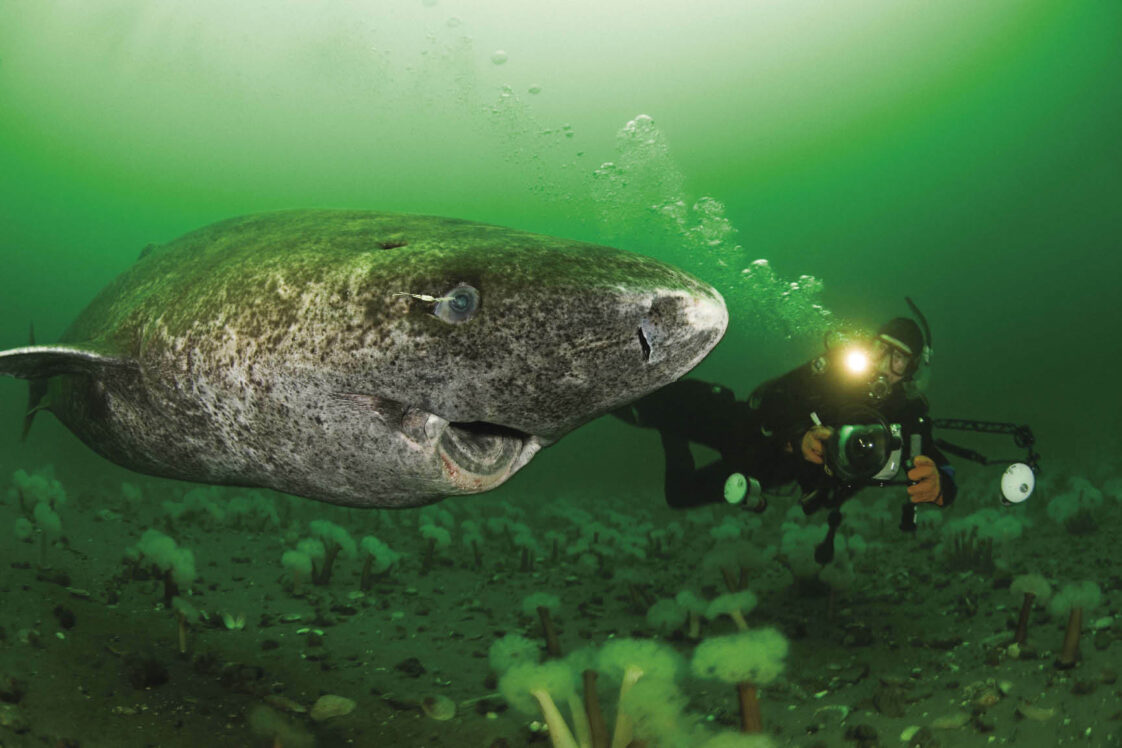Scientists discovered a 400-year-old Greenland shark that was most likely born in 1620. According to scientists, Greenland sharks are now the longest-living vertebrates on Earth.
Using radiocarbon dating of eye proteins, researchers determined the ages of 28 Greenland sharks, with one female estimated to be approximately 400 years old. The previous vertebrate record holder was an estimated 211-year-old bowhead whale.

As per lead author and marine biologist from the University of Copenhagen, Julius Nielsen:
“We had our expectations that we were dealing with an unusual animal, but I think everyone doing this research was very surprised to learn the sharks were as old as they were.”
Greenland sharks can grow up to 5 meters in length. However, they only grow 1 cm per year. They are found swimming slowly throughout the North Atlantic’s cold, deep waters.
The group believes that the animals only reach sexual maturity at a length of 4 meters. And this new, extremely extensive age range suggests that this only occurs once the animals are approximately 150 years old.

The research was made possible in part by atmospheric thermonuclear weapons tests conducted in the 1960s, which released massive quantities of radiocarbon that were subsequently absorbed by ocean ecosystems. The authors of the study determined that sharks with elevated radiocarbon levels in the nucleus of their eye tissue were born after the so-called “bomb pulse” and were younger than 50 years old. In contrast, sharks with lower radiocarbon levels were born before that and were at least 50 years old or older.
The scientists then calculated an age range for the older sharks based on their size and previous information regarding the birth size of Greenland sharks and fish growth rates.
According to the analysis results, the sharks were at least 272 years old and could have been as old as 512 years (!) on average, with 390 years being the most likely average life span, according to Nielsen.
Their longevity is due to their extremely sluggish metabolism and the cold waters they inhabit. They move so slowly through the icy waters of the Arctic and North Atlantic that they have earned the moniker “sleeper sharks.” Seal parts have been discovered in their stomachs, but the sharks move so slowly that experts believe the seals were either asleep or already dead when consumed.







